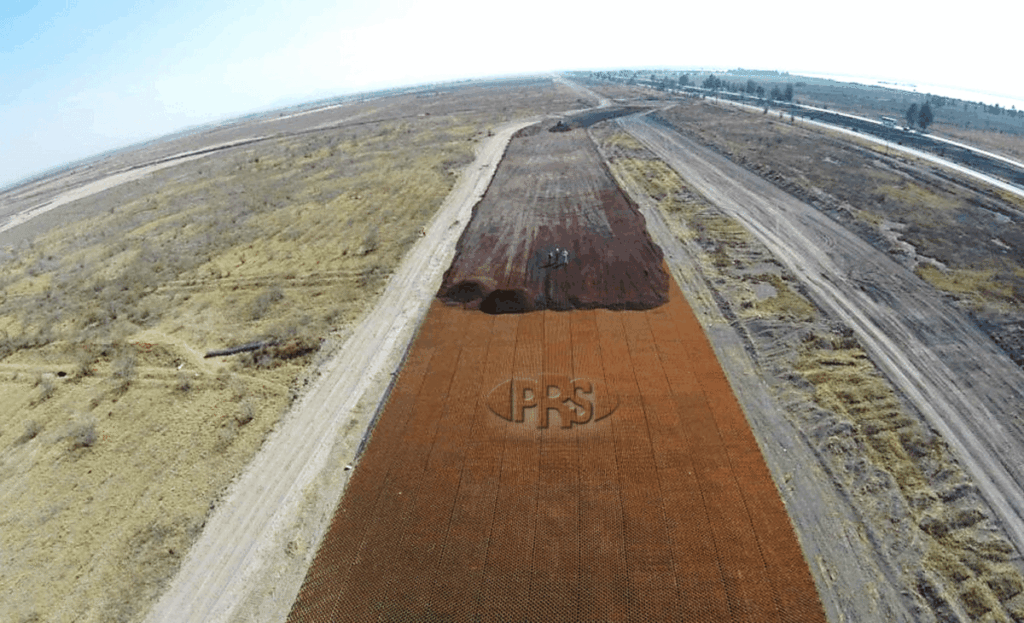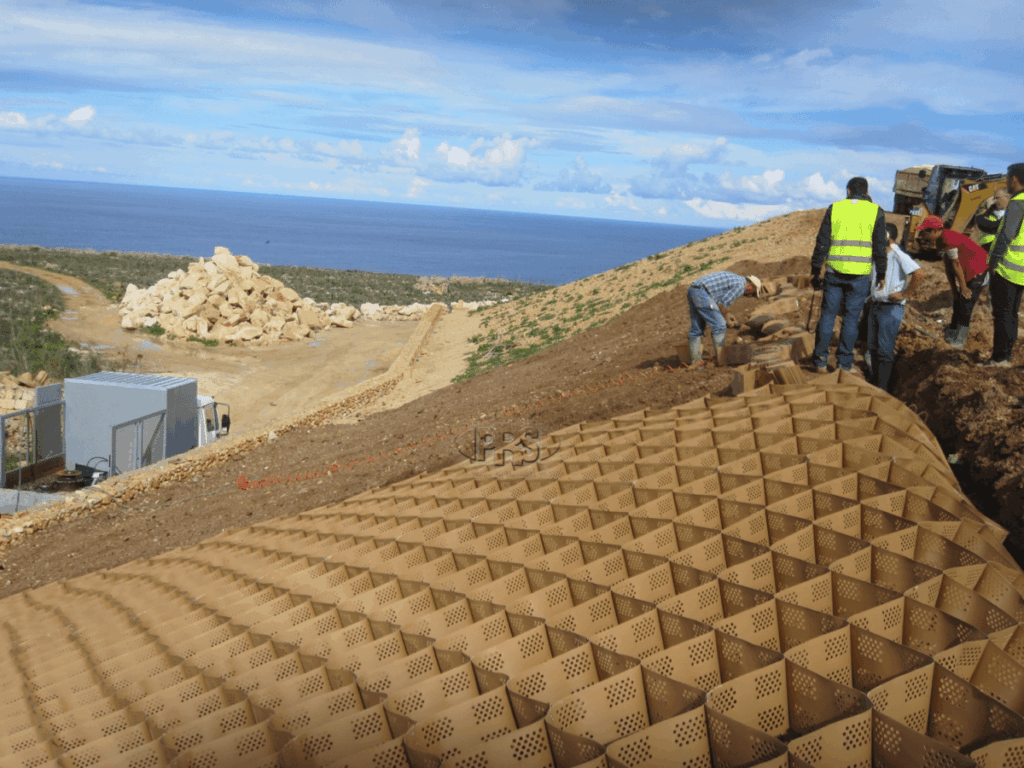Case-Study-Highway-6-Israel-Slideshowv2022.1-min
The Cross Israel Highway (Highway 6) is a 140 km national electronic toll road traversing the country’s long North-South corridor. Highway 6 is a DBOT (Design, Built, Operate, Transfer) project built by AECON Canada’s largest construction and infrastructure development company, at a cost of $1.4 billion. The Highway 6 concessionaire, Derech Eretz Group, needed to add a third lane in each direction in response to increased traffic intensity, and decided to test the Neoloy Tough-Cell cellular confinement system in pavement sections. The goal was to demonstrate how Neoloy could be integrated in a cost-efficient design by reducing the cost of infill and asphalt while maintaining long-term performance, within the following guidelines:
While the unreinforced conventional design for the Highway 6 pavement consists of: 200 mm asphalt, 200 mm crushed stone base and 170 mm subbase (670 mm total thickness), the alternative design with Neoloy Tough-Cells included two key improvements:
Neoloy 330 small size 140 mm height geocells (4 m wide sections) were installed in the base layer. The Neoloy Tough-Cells serve as a reinforcing inter-layer in the upper pavement directly under the asphalt (contrary to conventional geocell use in the subgrade). This maximizes the 3D reinforcement mechanism, thereby increasing the pavement structure bearing capacity and load distribution.
The road design was based on the empirical-mechanistic methodology and Flex-Design pavement design software. The use of Neoloy Tough-Cells resulted in a 2.7x higher elastic modulus for each pavement layer.
Conventional geocells made from HDPE are not used in paved highways due to questions about their long-term stiffness and durability. That’s why PRS created a new generation of geocell technology based on Neoloy®. Neoloy is a novel polymeric alloy based on nano-fibers in a polyolefin matrix that offers higher modulus, creep resistance and than HDPE.
Neoloy Tough-Cells are the only geocells specifically designed for the base layer of flexible asphalt pavements. They offer long-term resistance to creep, fatigue, stress-cracking, temperature extremes and oxidation. The mechanical, physical and chemical engineering properties of Neoloy extend the geocell design life well beyond conventional geocell technology and provide a clear value proposition compared to other geocells, geogrids and other reinforcement geosynthetics.
Monitoring was based on pressure cells located in the base layer of the section, which recorded the vertical stresses applied by static load plate loading. The results show that the vertical stress of the two Neoloy Tough-Cell sections is ~ 50% less than the unreinforced control section. Vertical loading on Neoloy infilled with compacted granular material creates a semi-rigid slab or “beam effect”. The load is distributed more effectively over a wider area, thereby increasing bearing capacity and decreasing differential settlement. This beam effect was verified by extensive testing at Kansas state universities (UK and KSU) and the Indian Institute of Technology (ITT) Chennai, India.
Neoloy Tough-Cells are a green solution that makes civil infrastructure projects more sustainable. It requires less quantity of aggregate for infill than conventional solutions, while utilizing lower quality marginal soils and recycled c materials. This reduces the use of virgin aggregate sources, as well as hauling and earth-moving equipment. This in turn decreases fuel use, pollution and carbon footprint. The ability of Neoloy Tough-Cells to increase road service life is a key component of a sustainable transportation strategy.

